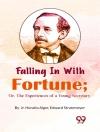In ‘The Vicar of Tours, ‘ Honoré de Balzac intricately weaves a tale that critiques the moral underpinnings of French society during the Restoration period. Written in Balzac’s characteristic realist style, the novella depicts the life of Abbé Bénédict, a well-meaning but flawed priest whose personal ambitions lead to a poignant exploration of faith, hypocrisy, and the human condition. Through Balzac’s astute characterizations and vivid portrayal of provincial life, the narrative reflects the pervasive social tensions of the time and the complex relationship between religion and personal integrity, presenting a microcosm of 19th-century France. Balzac, a foundational figure in the literary canon, drew inspiration from his own life experiences as he crafted this narrative. His extensive background in observing diverse social strata and the impact of societal norms served as fertile ground for the exploration of moral dilemmas present in ‘The Vicar of Tours.’ The author’s sharp insight into human psychology and social critique not only signifies his literary prowess but also his desire to bring clarity to the moral quandaries of his era. This novella is highly recommended for readers interested in the intersections of religion, morality, and society. Balzac’s eloquent prose and profound thematic exploration make this work a compelling study for both literature enthusiasts and those seeking to understand the complexities of human experience. ‘The Vicar of Tours’ is a timeless reflection on the human spirit and a significant contribution to the realist literary tradition.
Sobre o autor
Honoré de Balzac (1799–1850) was a French novelist and playwright whose magnum opus, ‘La Comédie Humaine’, stands as a testament to his monumental contribution to French realism. Balzac’s work is marked by an extensive use of detail to depict the complexities of society and the human condition. Born in Tours, France, Balzac’s early life was marred with financial struggles, manifesting a thematic preoccupation with wealth and classism in his later works. His acute portrayal of social stratification is vividly presented in ‘The Vicar of Tours’ (‘Le Curé de Tours’, 1832), a character-driven novella that delves into the life of a humble cleric ensnared by the petty politics and social mores of provincial French life. Balzac’s narrative style often involved meticulous character development and interlinking stories that create a rich tapestry of 19th-century French life. His influence is vast, having forged a literary bridge between the classical traditions and the emerging realist sensibilities of his time. Balzac’s works, including ‘Eugénie Grandet’, ‘Père Goriot’, and ‘Lost Illusions’, are essential studies for the depth with which they explore themes of societal change, ambition, and human vice, and they continue to be celebrated for their narrative depth and psychological insight.












